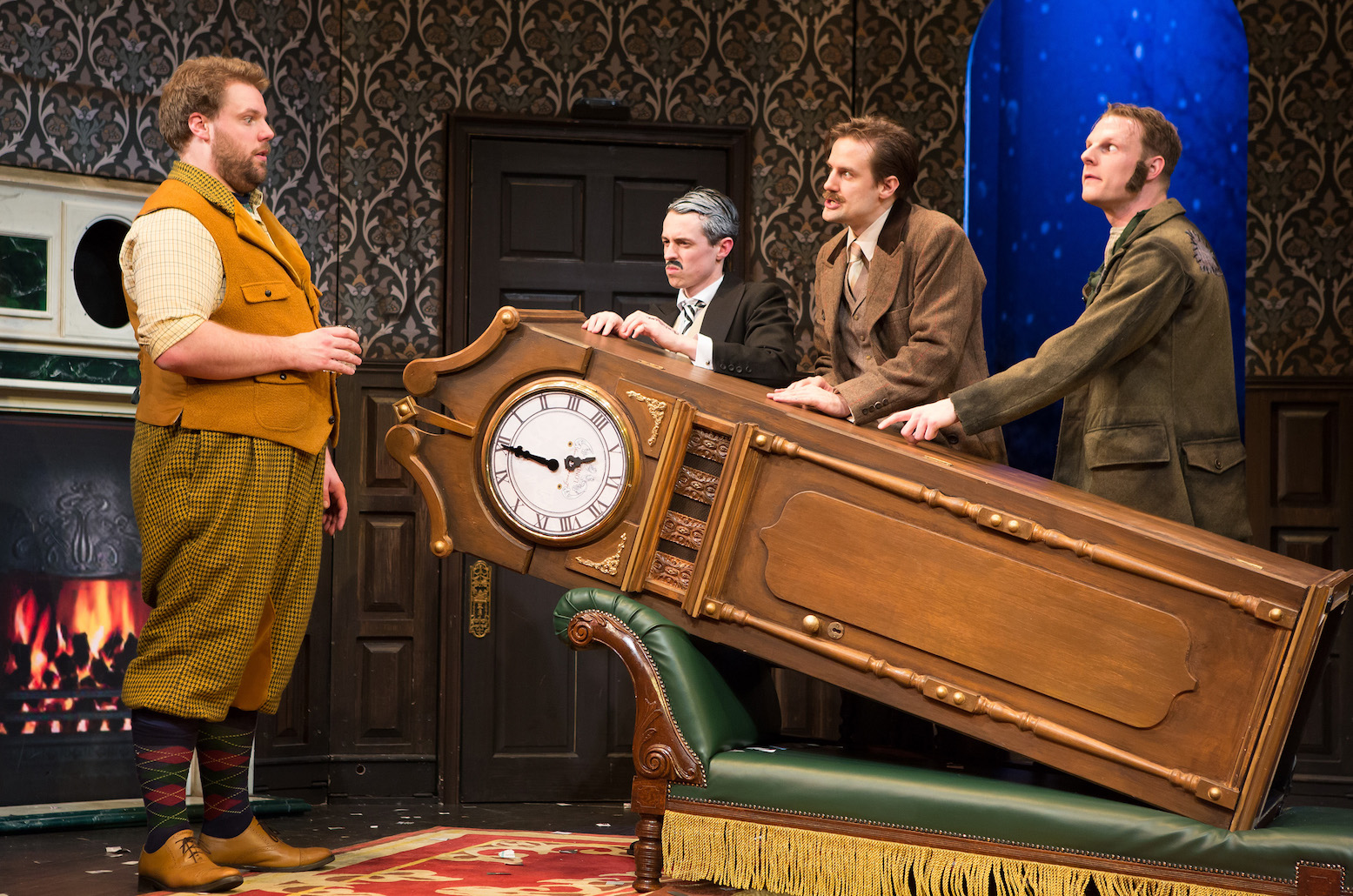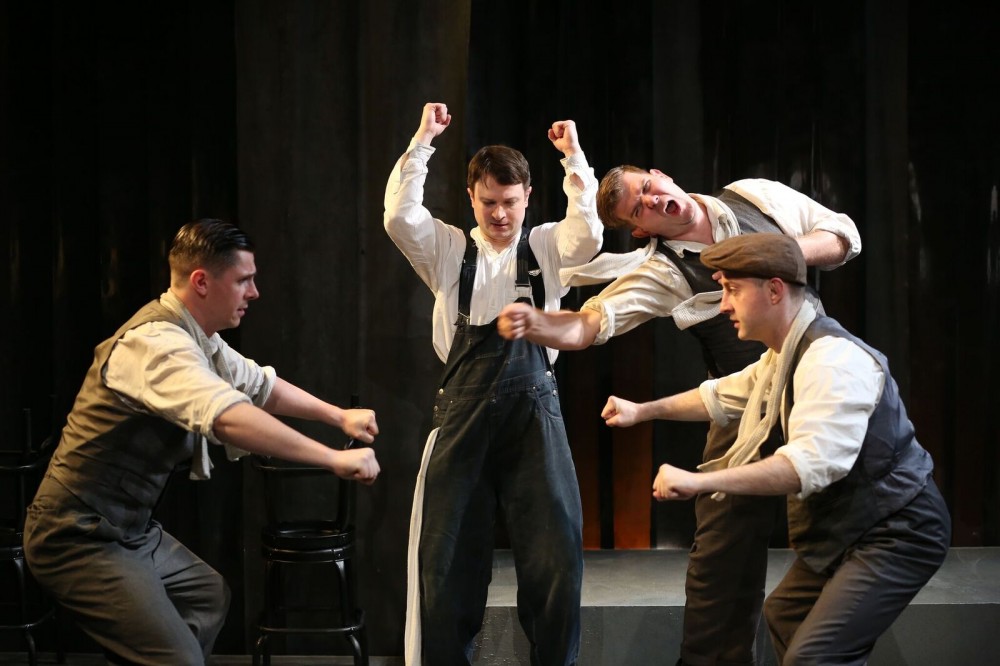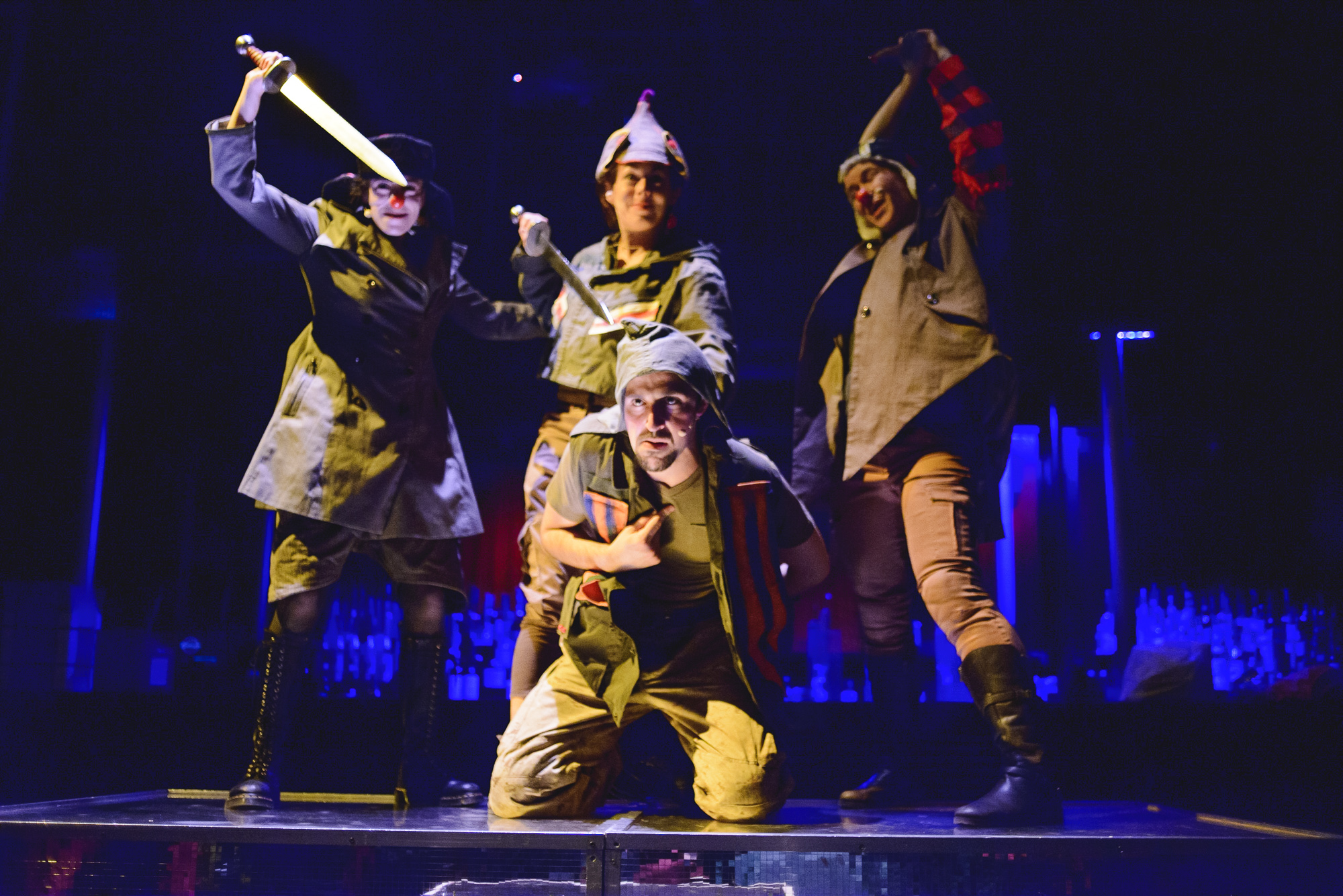by Carole Di Tosti
The power of life and death ultimately resides in our own minds. For some the problem is not in dying, but as William Shakespeare’s Hamlet suggested in his query, “What dreams may come…must give us pause.” What happens after life ceases?
Thoughts of the horrors that might perpetuate forever probably prevent many people from committing suicide. But these are not the considerations of Alice, the protagonist of Dust, the trenchant, mind-blowing and profoundly realized production in its New York premiere at New York Theatre Workshop Next Door.
Indeed, Alice portrayed with searing, raw vitality by Milly Thomas (who also wrote this devastating piece) apparently gave little consideration to “what comes after.” Unlike Hamlet, she seems to leap over the “pause” and decide to end her mental and emotional anguish with pills, alcohol and razor blades with little thought of the aftereffects of what she herself may experience.
Furthermore, when she reviews her past via flashback, we note she spends more time considering what implement to use and where to kill herself, rather than think about the impact of her suicide on loved ones like boyfriend Ben. That she deliberates this during painful sex at an “unfortunate angle” with Ben, itself a death-like process, is sardonically funny. Also, it reveals her profound personality disassociation. In life she wasn’t there for herself. In death she understands the misery of this.
Why didn’t she consider death’s aftershocks? Too taken up with self-torment, she allows her pain to govern her actions. But death doesn’t end her anguish. Instead, death morphs it into additional emotional upsets and harrowing realizations.
We discover this and other salient details about Alice’s existence as Alice rides in a stream of consciousness mental state of death’s” no-where-land.” In this state she flashes back and forth from the present, where she observes her family’s and friends’ responses to her suicide, to seminal moments in her past. She relates all of these experiences to us/ herself, in a consciousness that takes her wherever she wishes. In this fluidity she revisits familiar emotional places: the subway, her bedroom, her parents’ house, the kitchen, a former apartment where she lived and more.
At the end of each visiting and revisiting she regrets. And we experience her disquiet while she feels the torment she has caused for family and friends in the present, and relives moments in an unrequited, self-defeating past.
Time passes and she is not a part of it. As family, friends and lovers move on, she remains in stasis still responding emotionally with regret and remorse. She didn’t imagine the after-death process would be so unraveling. And with an ever increasing growing fear and dread, she understands her decision to die is irrevocable with no second chances.
Playwright Thomas twits our assumptions about the “after death” process. Has Alice, as she expresses her present/past experiences in the stream of consciousness realization of death, settled into a new form of being? Is her consciousness alive in death or is Alice gradually fading out of life, able to see and hear spirit-like until she comes to a final cessation of being and consciousness?
Brilliantly, Thomas codifies the “pause” that Hamlet so poignantly justifies as his reason why he cannot end his life. As Thomas enacts Alice’s negotiation of the “pause” sometimes with humor and other times with shock and revulsion, the playwright reveals death’s terrible impact. The uncertainty and dread that Alice threads for us is distinctly human. The bond she creates between us brings with it palpable revelations. Though we may not die by suicide, we may go through the same journey of regrets that Alice does. If so, then we must change our lives, while alive!
The power and specificity of Thomas’ writing, her amazing “in-the-moment” performance and Sara Joyce’s superb direction with design by Anna Reid, lighting design by Jack Weir and sound design by Max Perryment, place us in the center of Alice’s realizations. Suicide and death are not pain enders. As Alice “lives” in her death state, her misery is a worse torment because it is coupled with guilt, need, remorse and the torment that she harmed those she loved.
The beauty of Lost is in its humanity; we cannot help but empathize, we cannot help but feel unsettled, we cannot help but be warned off suicide.
Photos: Emilio Madrid – Kusor
This award-winning production runs with no intermission at New York Theatre Workshop Next Door in the Fourth Street Theatre (79 East 4th Street) until 29 September. For tickets visit https://www.nytw.org/show/dust/
























